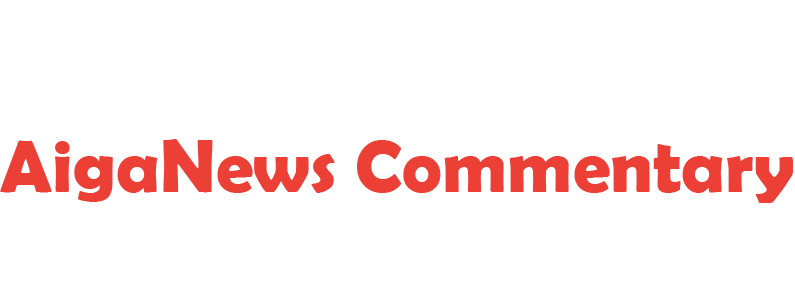April 15, 2022
By Meron Gebreananaye, Hailay Abrha Gesesew and Arkebe Taddele
The invasion of Ukraine by Russia on 24 February 2022, created reverberations that were felt around the world. This egregious breach of the most sacrosanct principles of the post-World War II international order was rightly met with shock and widespread condemnation. The international mood was captured by Kenya’s Permanent Representative to the UN, Amb. Martin Kimani, in his well-received address to the United Nations Security Council. His speech particularly stressed the importance of the existing rules and rejected imperialist and “irredentist” aspirations. While appropriate, such affirmations of the significance of multilateralism nonetheless place the spotlight on other instances where the international community has failed to muster a fraction of the mobilization witnessed in the case of Ukraine. Many have protested the failure of the international community, including members of the UNSC, to apply the same humanitarian and human rights principles in the face of the gruesome atrocities committed against civilians in African countries. One glaring example in this regard is the action – or lack thereof – of the international community in the face of the ongoing genocidal war and humanitarian catastrophe in Tigray, northern Ethiopia. On 4 November 2020, the federal government of Ethiopian, Eritrean armed forces, Amhara, and other regional militias launched a war on the Tigray region. This attack, which may originally have seemed like an attempt to violently resolve the political and constitutional differences between the Tigray regional government and the federal government, revealed itself from the outset to be a brutal scorched-earth campaign targeting the Tigrayan people. This campaign included indiscriminate shelling, hundreds of massacres, weaponized rape and famine on an industrial scale as a tool of war, violent ethnic cleansing, deliberate destruction of livelihoods and vital infrastructures including healthcare, education, and agriculture. Coordinating its efforts with regional states and Eritrean armed forces, the Ethiopian federal government also imposed a total siege and humanitarian blockade denying millions of people access to basic needs – including food and medicine – and services such as electricity, banking, and communication. Despite this dire situation – described as hell for millions of innocent children, women, and men as a result of the gross violations of international humanitarian and human rights laws – the international community has been unable to take any meaningful action beyond the moral outrage expressed early in the conflict. One such example was delivered by Amb. Linda Thomas Greenfield, United States Representative to the UN Security Council, exactly a year ago in April 2021: Do African lives not matter? It’s time for the Security Council to have a public meeting on this issue. It’s time for the Council to take meaningful action to address the crisis. And it’s time for the Ethiopian government to respond responsibly to requests for humanitarian access…. Similarly, in June of 2021, Joseph Borrell Fontelles, High Representative of the Union for Foreign Affairs and Security Policy, called the situation in Tigray unacceptable and went on to add: To the people of Tigray, we say: You are not alone. To the parties involved in the conflict, we say: The world is watching. You will be held accountable. This clarity, however, gradually disappeared over the months and was replaced by false equivalence, bothesidesism, and generalization. This was accompanied by a shift from addressing grave atrocities deserving of international mechanisms of response and accountability to a reductive and deliberately vague narrative formulating the ongoing conflict as ethnic clashes and political contestations between political entities. This shift was most apparently displayed in the decision by the US government to halt the release of the report on the determination as to whether genocide has been committed against Tigrayans. The Biden administration has also replaced unequivocal calls for the withdrawal of both Eritrean and Amhara forces from the constitutionally recognized borders of Tigray with more recent calls for the withdrawal of only the Eritrean armed forces. Similarly, the EU, which had vocally demanded the complete withdrawal of Eritrean and Ethiopian forces from Tigray, failed to issue any meaningful sanctions. The international community has been unable to take any meaningful action beyond the moral outrage expressed early in the conflict. The ensuing attempts to reframe the ongoing crisis solely in terms of a political conflict among political parties make a mockery of the extensive and deep suffering of millions of Tigrayans and impede the possibility of pursuing accountability and remedies. It also denies the massive asymmetry of the forces at play, where one side is comprised of two sovereign states with all the attendant military and diplomatic power, and support through the supply of advanced armaments from several nations (including UAE, Turkey, Iran, China, and Russia), against the people of a tiny and besieged region fighting for its survival. The extent to which the international community has opted to move away from a principles-based approach in relation to Tigray is brought into sharp relief when we consider not just the rightful outrage but the immediate action that has been taken in the case of Ukraine. When Josep Borrell declared “Ukraine, you are not alone!”, this promise was almost immediately backed by meaningful and sustained action from the European Union. Nor would the international media and commentators, who readily assign equivalence when covering Tigray, consider doing the same for the Ukraine-Russia war which also involves an invasion by an immeasurably stronger force, in violation of international law. Meanwhile, although the situation in Tigray has only worsened and gruesome atrocities continue unabated, Tigrayans have been demonstrably shown to be alone. Besieged and deliberately silenced by the communications and media blackout imposed on the region, Tigrayans have also been ignored by the international community, including the diplomatic community in Ethiopia which seems to have opted to normalise relations with the Ethiopian regime.
Read more at: https://www.theelephant.info/features/2022/04/15/ukraine-and-tigray-a-hierarchy-in-the-value-of-human-life/
The Elephant – Speaking truth to power.
